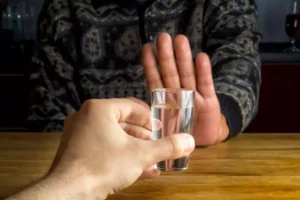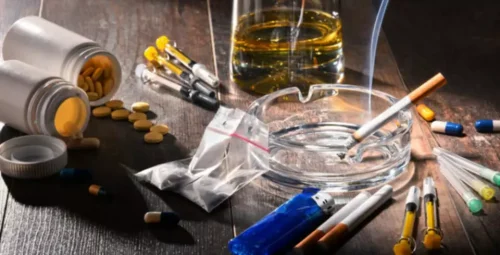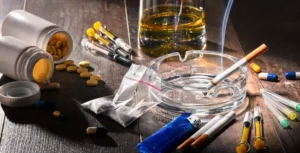
“The therapists’ responsibility is primarily to follow and facilitate rather than direct the experience” 24, p. 31. It should be noted that a contract is made before the session that if the traumatic event does not come up spontaneously the therapist will bring it up, but the authors report that thus far the event has always been raised by the participant 24, p. 66. Only two drugs, the selective serotonin reuptake inhibitors (SSRIs) sertraline hydrochloride (Zoloft) and paroxetine hydrochloride (Paxil), are approved oral medications for PTSD (6–8). These medications and trauma-focused psychotherapies (e.g., eye movement desensitization, cognitive processing therapy, prolonged exposure) are recommended as first-line treatments for PTSD (9–12). In a meta-analysis evaluating psychotherapy versus pharmacotherapy, trauma-focused psychotherapies resulted in greater and longer lasting improvements than medications (12).
MDMA-Assisted Therapy for PTSD

It is shorter-acting, which makes it more clinically manageable, it enhances feelings of How Long Does MDMA Stay in Your System empathy and bonding and allows users to access and process memories of emotional trauma (5). The researchers used the clinician-administered PTSD Scale for DSM-5 (CAPS-5) to measure PTSD severity. The researchers also used the Sheehan Disability Scale (SDS) to examine functional impairment.

Get help from Veterans Crisis Line

“Despite some very loud noise, we have yet to see any credible evidence that research misconduct occurred in Phase 3,” King adds. He fears, however, the “air of controversy” may have influenced some committee members. Lykos Therapeutics insists it took “significant steps” to ensure consistency. But as King points out, talk therapy in general is not regulated at the federal or state level.

Other MDMA Therapy Resources
He notes that the presence and skill of a trained therapist is key to positive treatment outcomes. Peer review information Nature Medicine thanks Philip Cowen, Kirsty James and the other, anonymous, reviewer(s) for their contribution to the peer review of this work. Jerome Staal was the primary editor on this article and managed its editorial process and peer review in collaboration with the rest of the editorial team. 2021 research suggests that using MDMA in clinical settings may be safe and well-tolerated and may result in significant reductions in PTSD symptoms. It is an empathogen, which is a type of drug that alters neurotransmitters in the brain to affect how a person feels.
What is MDMA therapy used for?
- “What we don’t want to happen after this success is for only a minority of people to be able to afford the treatment,” said Steele.
- Since the FDA does not regulate psychotherapy, the BT application did not compare MDMA-assisted psychotherapy to trauma-focused therapies.
- He fears, however, the “air of controversy” may have influenced some committee members.
- They “alter perception and mood and affect numerous cognitive processes” (1).
- There were 92 MDMA-related deaths in England and Wales in 2018, up from 56 the year before,29 and 10,000 hospitalizations for MDMA-related illness/injury in 2011 in the US.11 However, as of 2021, there have been no such cases reported for clinical settings.
- Two active doses (100 and 125 mg) were compared with a low dose (40 mg) session, and later the low dose group crossed over for three open-label active dose sessions.
The MAPS model suggests that two or three MDMA-assisted psychotherapy sessions may produce long-term benefits. “However, this does not fit with current models of pharmacotherapy, where regular dosing is required to maintain the altered neurotransmitter status (viz. antidepressants or antipsychotics 45, p. 300)”. As Doblin et al. 48 reply, “Parrott’s statement misses the point” (p. 106). Further research is required to establish the safety and efficacy of this method as a potential first-line treatment option for all diagnosed with PTSD, and Parrott appears to simultaneously miss the point and make the point.
Traumatised combat veterans could soon be treated with MDMA after recreational drugs found to help those suffering from nervous conditions” (The Independent 32). MDMA-assisted psychotherapy may help people who have experienced psychological trauma and who have not been able to resolve their problems through existing treatments, however more research is needed. If this is to get appropriate research attention, we must report this accurately and objectively. Researchers did exclude participants who were at high risk for suicide, had comorbid personality disorders, or had underlying cardiovascular disease. They also excluded participants who had histories of or current certain substance use disorders. There was some risk that expectations of treatment could have impacted results.

A primary issue was functional unblinding, or the ability of participants to tell whether they received a placebo or active drug – which has the potential to influence the outcome captured in the data. More than 90% of people in the MDMA group and 75% in the placebo group correctly guessed their treatment arm in the second Phase 3 trial. Chin was among 104 participants in the multi-site trial, which found that those suffering from moderate or severe PTSD who took MDMA, paired with psychotherapy sessions, were about twice as likely to recover from their trauma as those who took a placebo.
